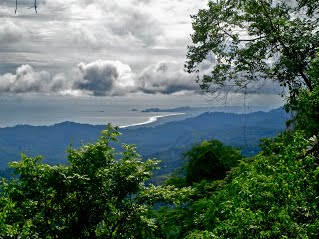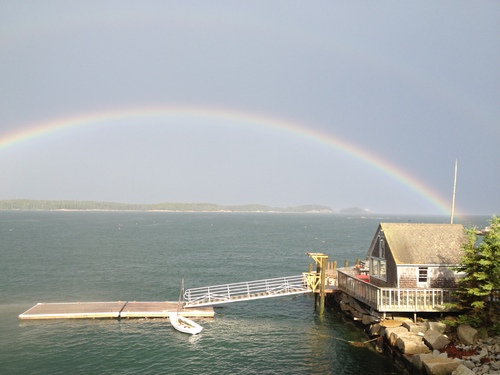Upper School students will have a new opportunity next school year to explore a different part of the globe as they deepen their understanding of science, culture and the environment.
During the 2017-2018 school year, the AFS Center for Experiential Learning will be introducing a global travel program that emphasizes leadership, experiential learning and service. In announcing the initiatives, Rosanne Mistretta, the center’s director, said, “I wanted to let Upper School students and parents know about these two trips now so they can think about making them part of their travel plans next year.”
One of the trips, during Spring Break next year, will be to Costa Rica and will focus on important ecological, social, cultural, and economic issues. Students will make meaningful connections and reach deeper levels of understanding about another culture. The trip will run from March 23-29, 2018.
Students will learn about sustainable and organic agriculture, microclimates and layers of life in the forest canopy and the emblematic and endangered species of Costa Rica. They’ll be participating in organic agriculture and reforestation service projects. Students also will have a chance for some adventure while zip lining through the rainforest canopy. The trip is being arranged with the help of Chill Expeditions, a well-respected purveyor of educational travel and eco‐tourism that has worked with many Quaker schools in our area.
The other trip, from June 10-16, 2018, will be to The Hurricane Island Center for Science and Leadership (HICSL) in Maine. The center is a scientific and education community that provides experiential, hands-on education programs and research opportunities focusing on marine sciences, STEM education, human ecology, sustainable living technology, citizen science initiatives and leadership in environmental stewardship. The programs take place on Hurricane Island, one of the most unusual and beautiful settings on the Atlantic coast.
Students will learn about an aspect of the island (the intertidal environment, the sustainable infrastructure, terrestrial ecology, freshwater resources, or migratory birds), which will be the basis for a field experiment on the topic. This program is designed to help students gain first-hand experience working through the process of doing science.
Part of the week also will be devoted to citizen science initiatives that expose students to ways they can regularly contribute to science, reduce their own impacts and become effective environmental stewards.
Each trip will be limited to 15 participants and will be open to all Upper School students. Rosanne said there will be an information packet coming soon that will have more details about each trip, including cost and needs-based scholarship opportunities. If you have questions, please contact Rosanne in the Center for Experiential Learning.

